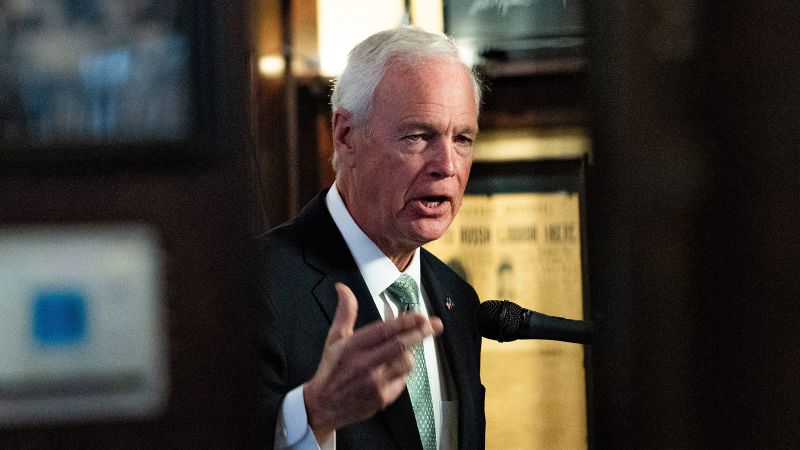Top Senate Republicans are running into some resistance from several key senators about the details ofPresident Donald Trump’s“big beautiful bill,” potentially complicating plans to deliver that package by their own July 4 deadline.
Hours afterunveiling central tenetsof the Senate GOP’s measure, at least one GOP senator – conservative Sen. Ron Johnson of Wisconsin – said he is currently opposed to the bill, saying it doesn’t do enough to control US spending. He added there’s “no way” the bill can be fixed in time to pass by July 4.
“Not by July 4th. No way. We haven’t had the discussions we need,” Johnson said.
Two more GOP senators were noncommittal on the bill but raised issues with one major piece of it – a crackdown on the so-called provider tax that some states rely on to help fund their Medicaid programs. Those included Sens. Josh Hawley of Missouri and Susan Collins of Maine.
Hawley said he was taken “completely off-guard” by the change to the provider tax rate in the Senate version of Trump’s bill.
“This is a major departure from the House framework. This took me totally by surprise,” Hawley told reporters after he stepped out of a meeting on the bill with his fellow Republican senators.
Collins confirmed to reporters that she also has problems with the provider tax, but declined to go into the details of the bill. Asked if she had been consulted throughout the process and had been listened to, she said: “Sometimes yes and sometimes no.”
And it’s not just those three: Sen. Rick Scott of Florida wouldn’t say he is a yes, signaling he wants to see even more reforms to Medicaid. And Sen. Bill Cassidy of Louisiana, too, was noncommittal, saying, “I’m still reading.”
The early reactions from those senators previews a tricky battle ahead for Senate Majority Leader John Thune, who can afford to lose only three GOP votes on Trump’s final tax and spending bill. Thune and his leadership team must satisfy their hard-right members, like Johnson and Scott, without losing equally vocal Republicans like Hawley, who has vowed to tank any bill that cuts Medicaid benefits.
GOP leaders are racing to put their bill on the floor next week, eager to deliver Trump a win on tax breaks, spending cuts and additional military money, particularly as he faces a quickly escalating international crisis in the Middle East. But multiple rank-and-file Republicans are eager to make their own changes to Trump’s bill, aware that the giant policy measure may be their only chance to get their own priorities passed.
Ultimately, GOP leaders are betting that there aren’t enough Republicans in their chamber willing to defy Trump and that they will get the votes they need, even if it takes more time.
“Everybody’s got an opinion, and I think it’s gonna be that way right up until we vote,” Sen. John Hoeven of North Dakota told reporters.
CNN’s Alison Main, Molly English and Ted Barrett contributed to this report.
